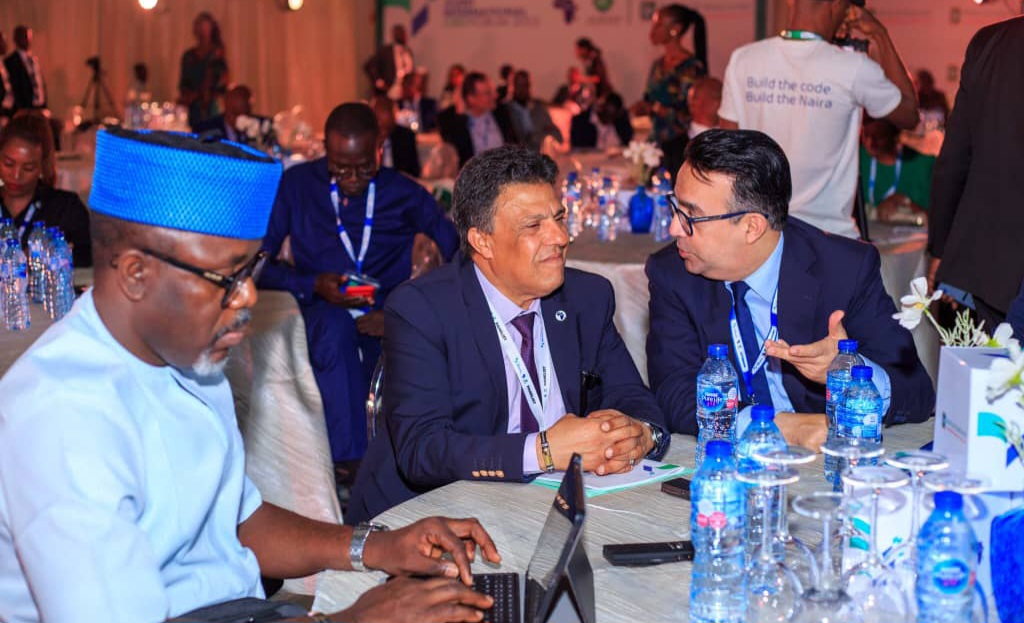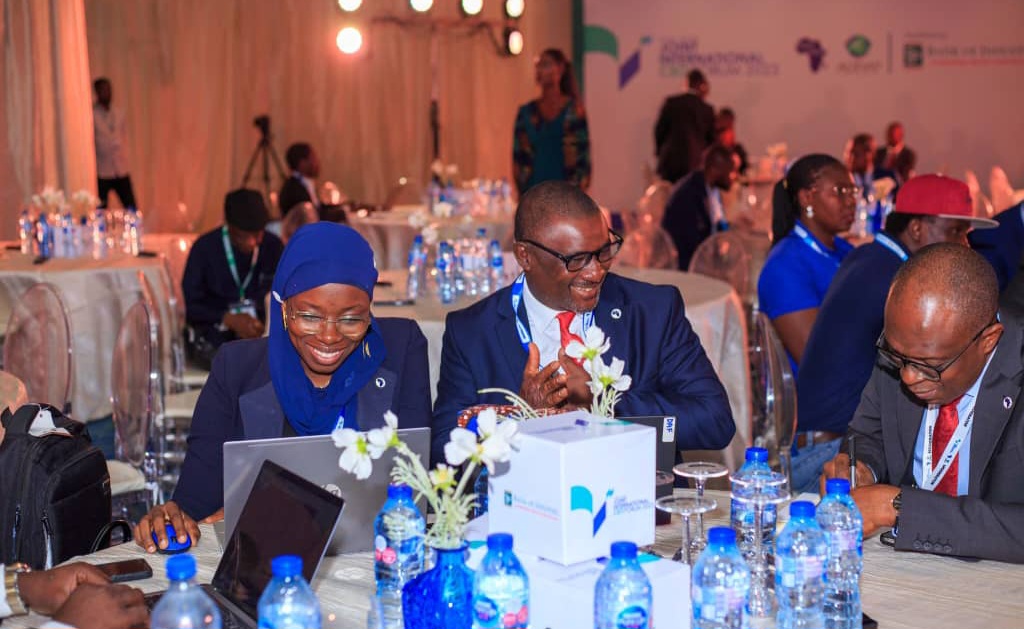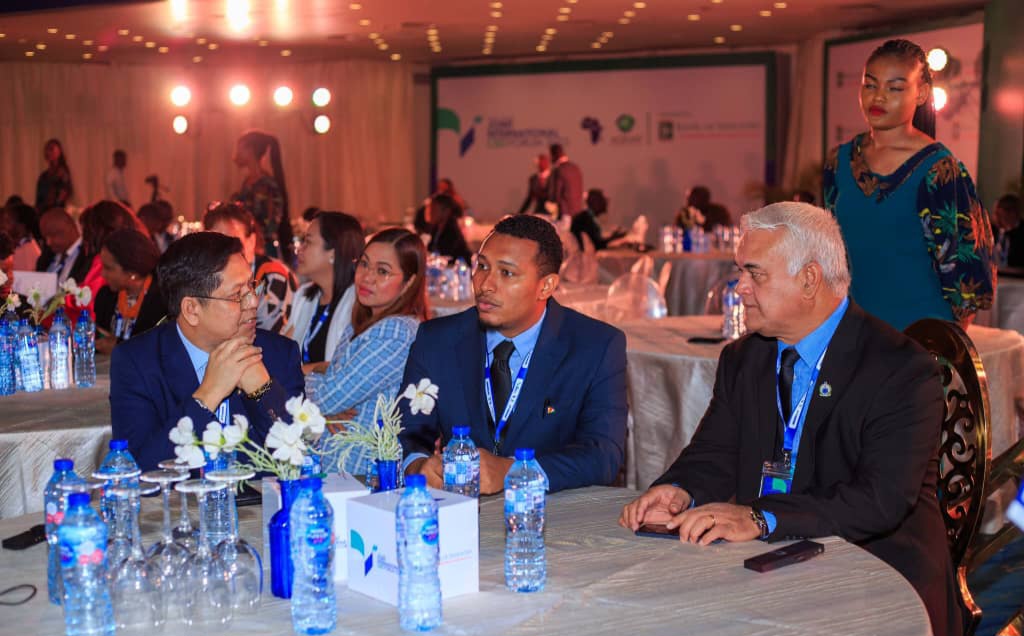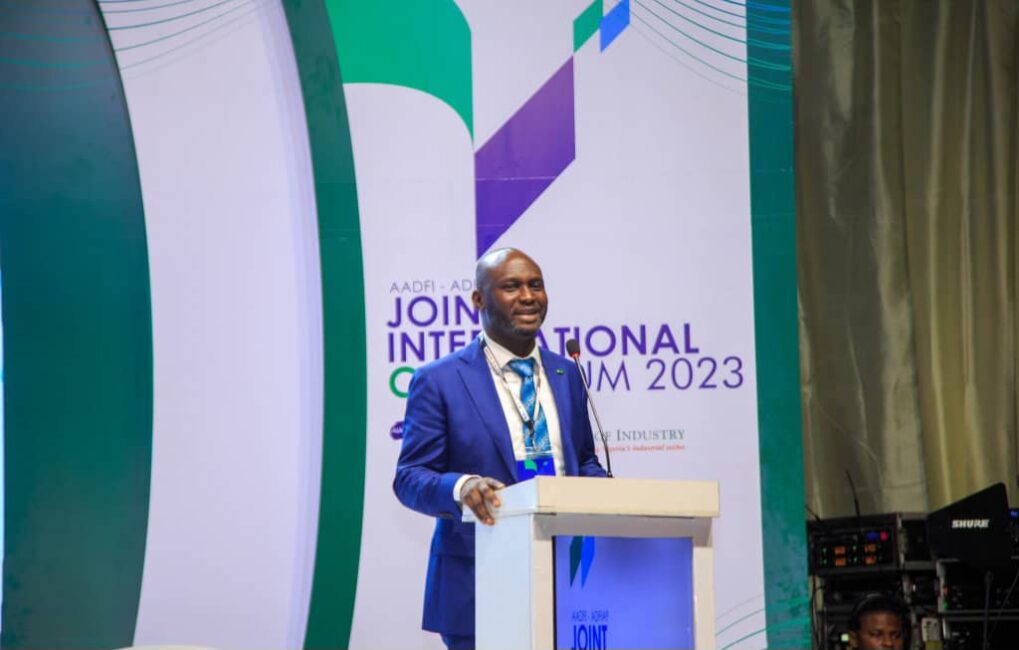Poor Funding Of Climate-Smart Projects May Cost Africa 5% Of GDP, DFIs Warn
Development Finance Institutions under the auspices of the Association of African Development Finance Institutions have advocated the expansion of actionable plans to incorporate climate-resilient products and measurable targets into African business models as part of solutions to address climate finance needs and derisk sustainable investments in the region.
This was as it revealed that Africa may lose between five per cent to 15 per cent of its projected Gross Domestic Product by 2050 if immediate actions are not taken to mitigate the effects of climate change in the region.
Advertisement
The financial institutions made this known at the ongoing Joint International CEO Forum of the Association of African Development Finance Institutions and the Association of Development Financing Institutions in Asia and the Pacific hosted by the Bank of Industry on Thursday in Abuja.
The event was attended by bank Chief Executive Officers from 33 countries across four continents and it was themed, “DFIs’ Strategic Role towards a Climate Smart Future.”

The AADFI Chairman, Mr Thabo Thamane, while delivering his address noted that the region is experiencing a climate emergency today, as highlighted in UNDP publications. In addition to addressing the challenges of climate change, we must also address the need for just transition.
Advertisement
The AADFI Chairman noted that the adverse effects of climate change threaten human health and safety, food and water security, and sustainable socio-economic development globally and ideas.
He said, “It is no longer news that the world is facing the negative impact of climate change. Human health and safety, food and water security, and sustainable socio-economic development are threatened globally.

“Reports predict that if strategic actions are not taken to combat climate change, the world economy will lose more than 18% of its current GDP by 2048, and the least developed countries, particularly those in Africa, Asia-Pacific, and Latin America, will suffer the worst consequences.
“Africa, for instance, is estimated to lose five per cent to 15 per cent of its projected GDP by 2050, with a projected climate adaptation cost of $10 to $30 billion annually by 2030. At the same time, the Asia and ASEAN countries are projected to lose 26.5 per cent and 37.4 per cent of their GDP by 2048 if immediate action is not taken to mitigate the effects of climate change.
Advertisement

“We are today in a climate emergency, which calls for urgent action from all stakeholders and responding just and equitably. We must sustain efforts in embedding climate-friendly initiatives in our operations for a bright future.”
Advocating solutions, the Managing Director of the Bank of Industry, Dr. Olasupo Olusi, stated that closing the financing gap; stronger climate commitments; tapping into the potential of renewable energy, and partnerships and collaboration, are the important ways that we must work together to achieve our climate ambitions.
He noted that a climate-resilient economy in developing countries can only be built by closing funding gaps, using renewable energy solutions, and developing innovative partnerships and collaborations.
He said, “We live in a world where climatic events are claiming lives; disrupting food systems; limiting infrastructure; and generally slowing down economic growth and development across member nations; while accelerating poverty, to the detriment of mankind. There is an expectation of a global surge in investments in renewable energy, energy-efficient projects, sustainable infrastructure, and other environmentally friendly initiatives
“We must ensure that our institutions are resilient enough to attract affordable long-term finance through which we can implement green projects.
Advertisement
“As Nigeria’s leading DFI, one of the primary drivers of BoI’s developmental strategy is to accelerate Nigeria’s development through supporting environmentally friendly and sustainable projects across the key sectors of the economy and closing the financing gap; stronger climate commitments; tapping into the potential of renewable energy, with effective partnerships and collaboration are the important ways that we must work together to achieve our climate ambitions.
“At BoI, we are very active in resourcing climate-friendly funds, including the recent credit line of 100 million Euros secured from the French Development Agency to expand green finance in Nigeria. BOI has worked with our partners to raise over $5 billion from several international financial institutions in the last five years. We intend to leverage our extensive partnership to raise the resources required for building a climate-smart Nigeria, in line with our President’s vision.”
The Minister of Industry, Trade and Investment Doris Uzoka-Anite,who declared the conference open, charged participants that if DFIs failed to create solution for climate change mitigation and adaptation where agriculture and inadequate infrastructure prevail, it will further worsen the challenge of climate change.
She said through innovation, DFIs can boost agric productivity and reduce hunger.
She told participants that the decision made by DFIs at the conference will change the economy, lead to prosperity and improve livelihoods of the people.
The Minister pledged the Federal Government’s commitment to collaborating with the international community to attract investments to boost job creation and guarantee self sufficiency.
She advocated the expansion of actionable plans to incorporate climate-resilient products and measurable targets into African business models as part of solutions to address climate finance needs and derisk sustainable investments in the region.
ENDS



